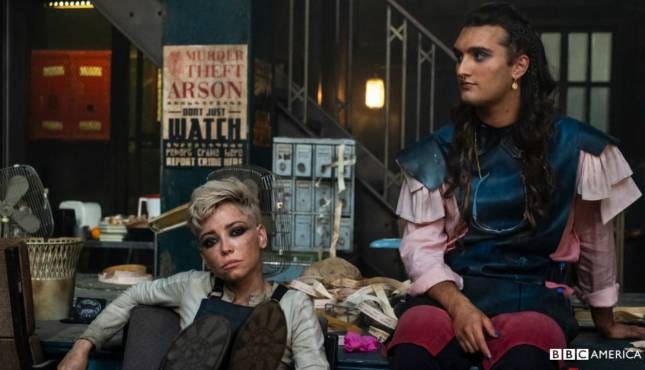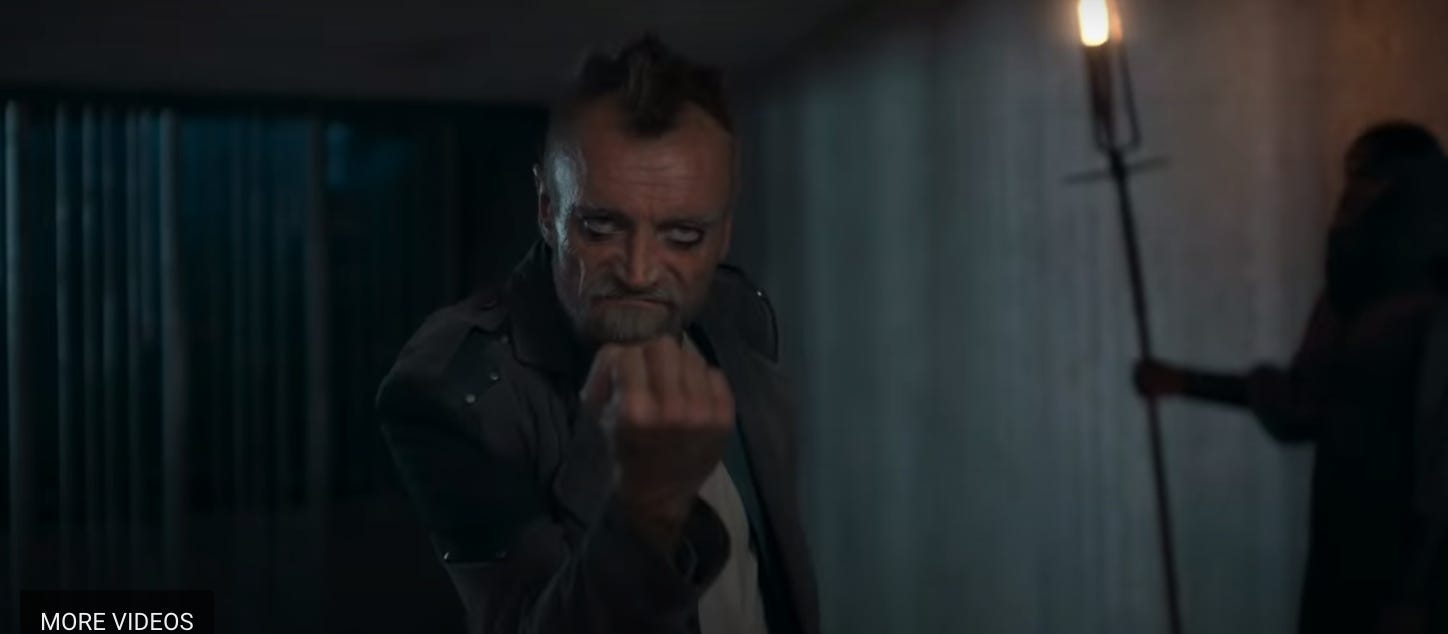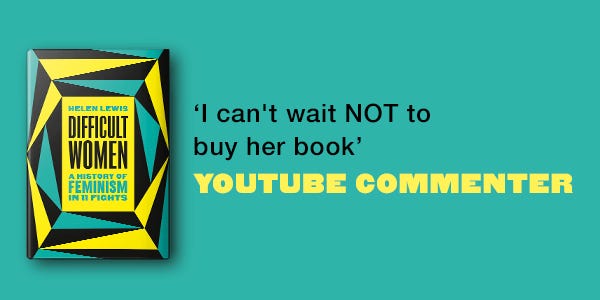Happy Friday!
There was nearly no newsletter this week, after I watched this trailer for the BBC’s Terry Pratchett adaptation* and had to breathe in and out of a paper bag for several minutes.
Help me. HELP ME. I don’t want to be one of those uber-fans who treat adaptations like desecrating the holy verse, but . . . what is going on here? Thin, sexy, young Sybil Ramkin? Tiny Angua? Teenage Carrot? Irish Vimes? Male Cherry Littlebottom? Anna Chancellor as the Patrician has changed my mind on gender-swapped casting. I am now AGAINST IT. (Why is she . . . pausing . . . like . . . . . . . . Robert Peston? Why does she have a loaf on her head?) It’s like they decided to cast the characters by picking characteristics out of a tombola.
Lara Rossi as Sybil upsets me most, fine actor though she is. Surely one of Britain’s many well-upholstered middle-aged matrons needed some work? (If all else fails, Hilary Mantel just finished The Mirror and the Light. Let her have a crack at it.)
Maybe it will be brilliant and I will eat these words, cursing myself for my lack of vision. Maybe the phrase “a group of misfit cops” in the press release was an oversight. Maybe once I see Samuel Vimes in a sleeveless leather vest, playing guitar, it will all make sense. (Hmm, though: Vimes is like the ur-husband who hates dressing up in anything “fancy”.)
Maybe I will take another look and stop being so——IS THAT A PLASTIC KETTLE?

Yours through smelling salts,
Helen
*technically it’s “inspired by”, but if you have read the books, you will know it’s obviously not inspired by them. Terry Pratchett is a tone above everything else, and that tone is not fireworks and punk guitars and everyone in eyeliner.
PS. Although it probably won’t be enough to impress Benjamin Cohen, I’m on Have I Got News For You tonight. BBC One, 9pm.
Tennessee Williams: The Catastrophe of Success (Genius)
Security is a kind of death, I think, and it can come to you in a storm of royalty checks beside a kidney-shaped pool in Beverly Hills or anywhere at all that is removed from the conditions that made you an artist, if that’s what you are or were intended to be. Ask, anyone who has experienced the kind of success I am talking about— What good is it? Perhaps to get an honest answer you will have to give him a shot of truth serum but the word he will finally groan is unprintable in genteel publications.
Then what is good? The obsessive interest in human affairs, plus a certain amount of compassion and moral conviction, that first made the experience of living something that must be translated into pigment or music or bodily movement or poetry or prose or anything that’s dynamic and expressive—that’s what’s good for you if you’re at all serious in your aims. William Saroyan wrote a great play on this theme, that purity of heart is the one success worth having. “In the time of your life—live!” That time is short and it doesn’t return again. It is slipping away while I write this and while you read it, and the monosyllable of the clock is Loss, loss, loss, unless you devote your heart to its opposition.
Thanks, Tennessee. This is why I have chosen not to become a runaway bestseller, actually. It keeps me humble.

The Unquiet Mind of Hilary Mantel (New Statesman, 2012)
You can’t write about Mantel without writing about her body. From her memoir: “One of my favoured grim sports, since I became a published writer and had people to interview me, has been to wait and see how the profiler will turn me out in print. With what adjective will they characterise the startlingly round woman on whose sofa they are lolling? ‘Apple-cheeked’ is the sweetest. ‘Maternal’ made me smile: well, almost.”
As a child, she was frail, thin, small, but a combination of illness and medication distorted her natural shape. For much of her life Mantel has felt she is inhabiting a stranger’s body. She looks in the mirror and can, sometimes, see the ghost of the person she once was, but it is concealed by flesh. And then there are the other ghosts: those of the children she couldn’t have. In all her books, but especially the Cromwell books, there are wombs, foetuses, the unborn, shadows of dead children everywhere. If Gerald and she had been able to have a daughter, they would have called her Catriona.
I have just filed a review of the excellently named Mantel Pieces to the New Statesman, and writing it sent me back to this profile by Sophie Elmhirst, from my time at the NS. I remember Sophie creeping over and asking me to read it, because she “had tried something a bit experimental”. Typical modest Sophie: it’s the best piece I’ve read on Hilary Mantel, better even than the New Yorker profile which followed soon after, and for which the writer probably moved in Chez Mantel for six months. (Shout-out to the British Longform Writers Therapy Circle: yes, we don’t get enough access compared with American magazines, do we?)
It also contains one of my favourite lines, which unfortunately you’re not allowed to say as a journalist when your editor tells you that a paragraph doesn’t make sense: “You simply cannot run remedial classes for people on the page”.
Well, that was a nasty turn earlier about the kettle, but I’m OK now!

No, wait, I’ve gone again.
Quick Links
“I have not been very keen on Zoom performances, what little I’ve seen of them.” Slate’s oral history of the Zoom production of Angels in America.
“The first time someone flies a jetpack, a curious thing happens: just as their body leaves the ground, their legs start to flail. A new Oli Franklin-Wallis piece is always a treat. (Wired)
Why British Cop Shows Are Better Than American Ones (Atlantic).
It’s Dan Bongino’s world; we just live in it.

See you next time . . .


